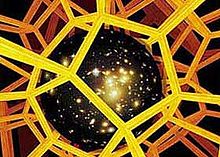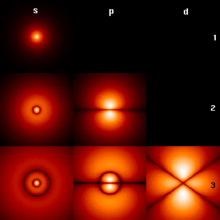Nature: Difference between revisions
→The natural and the artificial: added wildness link |
|||
| Line 31: | Line 31: | ||
A distinction is often drawn between the "natural" and the "artificial" (="man-made"). Can such a distinction be justified? One approach is to exclude [[mind]] from the realm of the natural; another is to exclude not only mind, but also [[human]]s and their influence. In either case, the boundary between the natural and the artificial is a difficult one to draw (see [[mind-body problem]]). Some people believe that the problem is best avoided by saying that everything is natural, but that does little to clarify the concept of the "artificial". In any event, [[ambiguity|ambiguities]] about the [[distinct]]ion between the natural and the artificial animate much of [[art]], [[literature]] and [[philosophy]]. |
A distinction is often drawn between the "natural" and the "artificial" (="man-made"). Can such a distinction be justified? One approach is to exclude [[mind]] from the realm of the natural; another is to exclude not only mind, but also [[human]]s and their influence. In either case, the boundary between the natural and the artificial is a difficult one to draw (see [[mind-body problem]]). Some people believe that the problem is best avoided by saying that everything is natural, but that does little to clarify the concept of the "artificial". In any event, [[ambiguity|ambiguities]] about the [[distinct]]ion between the natural and the artificial animate much of [[art]], [[literature]] and [[philosophy]]. |
||
Another approach is to distinguish ''natural processes'' and ''artificial (man-made) processes''. In this viewpoint, a [[process]] is deemed to occur either at the behest of man, or not. For example, flipping a light switch might illuminate a room, or perhaps a sunrise might illuminate that room. In this viewpoint, the sunrise would be termed a ''natural process''; the decision of a human being to flip the light switch would be termed an artificial illumination, in contrast. In this viewpoint, ''artifice'' ([[art]] or [[literature]]) is clearly the result of willful human action; furthermore, the act of stating a philosophical position could also be a willful action (and hence at the behest of man), whether or not the content of the philosophy were to be about science. |
Another approach is to distinguish ''natural processes'' and ''artificial (man-made) processes''. In this viewpoint, a [[process]] is deemed to occur either at the behest of man, or not. For example, flipping a light switch might illuminate a room, or perhaps a sunrise might illuminate that room. In this viewpoint, the sunrise would be termed a ''natural process''; the decision of a human being to flip the light switch would be termed an artificial illumination, in contrast. In this viewpoint, ''artifice'' ([[art]] or [[literature]]) is clearly the result of willful human action; furthermore, the act of stating a philosophical position could also be a willful action (and hence at the behest of man), whether or not the content of the philosophy were to be about science. Natural processes, especially as used by organisms, may also be known as [[wildness]]. |
||
The distinction between what is natural and artificial was initially important, as far as we know, to the ancient Greeks. Perhaps their main interest was in distinguishing good aims from ones that have been distorted. In modern times, such philosophers as [[David Hume]] and [[John Stuart Mill]] have criticised attempts to give any moral importance to the distinction. |
The distinction between what is natural and artificial was initially important, as far as we know, to the ancient Greeks. Perhaps their main interest was in distinguishing good aims from ones that have been distorted. In modern times, such philosophers as [[David Hume]] and [[John Stuart Mill]] have criticised attempts to give any moral importance to the distinction. |
||
Revision as of 07:14, 28 March 2006




Nature (also called the material world, the material universe, the natural world, and the natural universe) is all matter and energy, especially in its essential form. Nature is the subject of scientific study, and the history of the concept is linked to the history of science. The English word derives from a Latin term, natura, which was in turn a translation of a Greek term, physis (φύσις). Natura is related to the Latin words relating to "birth", while physis relates to Greek words relating to "growth". In scale, "nature" includes everything from the universal to the subatomic. This includes all things animal, plant, and mineral; all natural resources and events (hurricanes, tornadoes, earthquakes). It also includes the behaviour of living animals, and processes associated with inanimate objects - the "way" that things change.
Divisions of nature
Nature outside Earth and its atmosphere
Events and phenomena outside Earth and its atmosphere are in the natural science of astronomy.
Life
Life, the characteristics and behaviors of organisms, how species and individuals come into existence, and the interactions they have with each other and with their environment are all in the natural science of biology. The branch of biology that focuses on the relationships of organisms and their environment is the science of ecology.
Chemicals
The structure, properties, composition, and reactions of chemical elements and compounds are part of the natural science of chemistry.
Matter and force
The behaviour and interactions of matter and force are a part of the natural science of physics.
Earth
Everything relating to the planet Earth is a part of earth science.
Philosophy of nature
Metaphysics
In philosophy, the view that the material world of atoms, animals, gravity, stars, wind, microbes, etc., actually exist independently of our observations of them is termed realism; the opposing view is called idealism.
The natural and the artificial
A distinction is often drawn between the "natural" and the "artificial" (="man-made"). Can such a distinction be justified? One approach is to exclude mind from the realm of the natural; another is to exclude not only mind, but also humans and their influence. In either case, the boundary between the natural and the artificial is a difficult one to draw (see mind-body problem). Some people believe that the problem is best avoided by saying that everything is natural, but that does little to clarify the concept of the "artificial". In any event, ambiguities about the distinction between the natural and the artificial animate much of art, literature and philosophy.
Another approach is to distinguish natural processes and artificial (man-made) processes. In this viewpoint, a process is deemed to occur either at the behest of man, or not. For example, flipping a light switch might illuminate a room, or perhaps a sunrise might illuminate that room. In this viewpoint, the sunrise would be termed a natural process; the decision of a human being to flip the light switch would be termed an artificial illumination, in contrast. In this viewpoint, artifice (art or literature) is clearly the result of willful human action; furthermore, the act of stating a philosophical position could also be a willful action (and hence at the behest of man), whether or not the content of the philosophy were to be about science. Natural processes, especially as used by organisms, may also be known as wildness.
The distinction between what is natural and artificial was initially important, as far as we know, to the ancient Greeks. Perhaps their main interest was in distinguishing good aims from ones that have been distorted. In modern times, such philosophers as David Hume and John Stuart Mill have criticised attempts to give any moral importance to the distinction.
Beauty in nature
The writer Steven Fry has commented that if we look around us, anything ugly that we see will have been created by human hands; this exemplifies a widely held view that nature is intrinsically beautiful. That the beauty of nature has been celebrated by so large a proportion of our art is further proof of the strength of this association between nature and beauty. Many scientists also share the conviction that nature is beautiful; the French mathematician, Jules Henri Poincaré (1854-1912) said:
"The scientist does not study nature because it is useful; he studies it because he delights in it, and he delights in it because it is beautiful.
If nature were not beautiful, it would not be worth knowing, and if nature were not worth knowing, life would not be worth living. Of course I do not here speak of that beauty that strikes the senses, the beauty of quality and appearances; not that I undervalue such beauty, far from it, but it has nothing to do with science; I mean that profounder beauty which comes from the harmonious order of the parts, and which a pure intelligence can grasp."
Related concepts
The term natural science is used in a variety of ways, primarily:
- to denote the study of natural processes as opposed to human activities, in contrast to the social sciences; and
- to denote those sciences which employ the scientific method, in contrast, for example, to mathematics or computer science.
The term natural philosophy formerly named the scientific discipline now known as physics.
Natural theology straddles the disciplines of theology and philosophy of religion.
In education and related areas, the contrast "natural/artificial" can appear as " nature/nurture".
See also: praeternatural, unnatural and supernatural.
See also
- Biophilia
- Mother Nature
- Naturefriends
- Natural environment
- Natural units (Planck units)
- Materialism
- Next nature
- Naturalism (Philosophy): the philosophical stance based on Materialism and Pragmatism that rejects the validity of explanations making use of entities inaccessible to natural science (compare with supernatural).
- Wilderness
External links
- The Nature Conservancy - a charitable organization devoted to preserving natural diversity worldwide
- English Nature UK government organization devoted to preserving natural diversity in the UK
- Nature Detectives An online research and education project for under 18s in the UK
- A Guide to Nature and Wildlife Conservation
- Nature (1869-1875) This collection of Nature provides insight into the developments and achievements of science at the end of the nineteenth century.
- Nature Picture
